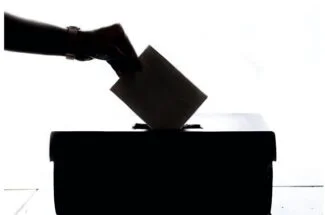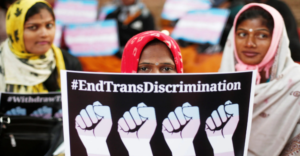~ Eashani Sharma
The preamble of the Indian Constitution states that India is a sovereign socialist secular democratic republic. But what does it mean? In simple terms, a democratic republic means that the power resides with the people of the nation, where a representative is elected by the majority. Elections are the means through which the representatives are elected.
What are elections?
Elections are a formal process where the people choose their representatives. Elections facilitate open discussions and debates to bring out the opinion of the public. The competitive atmosphere during the process of election brings speakers and supporters of different groups under scrutiny and helps the public in forming their opinions and taking decisions accordingly. Voting ensures that each qualifying individual gets a chance to express their wishes and select a representative.
Election process in India
The constitution of India follows a parliamentary form of government. It comprises the President of India and two Houses- Rajya Sabha (the council of states) and Lok Sabha (house of the people). There are separate state legislatures for each state, a Governor and two Houses, namely, legislative council and legislative assembly in seven states- Bihar, Telangana, Andhra Pradesh, Jammu and Kashmir, Karnataka, Uttar Pradesh and Maharashtra; a Governor and state legislative assembly in the other 22 states; NCT and Puducherry also have respective legislative assemblies.
Constituencies are marked. Electoral rolls (list of voters in a constituency) are then prepared. Political parties register themselves and individuals file their nomination papers. To formally contest, the party gives a “ticket” to the person who can then proceed to contest. They campaign in different constituencies, to encourage people to vote for them. Campaigning stops two days before voting starts.
The Election Commission of India
The Election Commission of India is an autonomous constitutional authority responsible for everything related to the elections. It ensures the conduct of members before, during and after the elections. They act like the guardians of elections in India. The commission sets down guidelines and limits for the political parties contesting the elections. To reduce malpractices, the commission introduced Electronic Voting Machines, with special provisions for the specially abled. They are also responsible for allotting symbols to political parties of India.
Bihar elections
Bihar elections are all the rage in news channels these days. The elections for the 243 member Bihar assembly will be held in phases. Three days- October 28, November 3 and November 7 have been marked for the same. Bihar election results will be revealed on November 10. Wed, 28 Oct, 2020 – Sat, 7 Nov, 2020 are the dates. Before trying to predict the outcome of this election know your duties, and as a citizen of this nation know that your vote counts.
Challenges
When we talk of elections and democracy and elections as a tool for democracy, the ‘free and fair’ phrase before the word ‘elections’ is silent but obvious. Sadly, that is not always the case. Bribery, rigging and such malpractices are common news nowadays. Often individuals exploit religion, caste and class differences while asking for votes, targeting vulnerabilities and specific groups for votes. Buying votes with promise to pay the voters money is also not a new practice. All democratic countries face such challenges. But if the elections are not free or fair, the whole purpose of democracy in India is lost. The election commission plays a vital role in maintaining the decorum and discipline during elections to make sure there are even playing fields for all
contenders and the voters are not manipulated or exploited. During elections, we see our society unfolding itself into different parts and all of them can’t be objective. But studying the changes and the uproar will lead us to answers. Whether our practices are still democratic or are they going against democracy and our principles? Questioning the government is not wrong, it is most definitely a right. It helps in clarifying complicated matters and helps in bringing changes on either side, like any other healthy dialogue. But it is essential that you are completely informed beforehand- informed of your rights, informed of the events and informed of the policies/decision or the action you are questioning. “that government of the people, by the people, for the people, shall not perish from the earth’, said Abraham Lincoln, while addressing Gettysburg and talked of democracy as the government. The fundamentals of democracy involve individual freedom, rights and above all equality. With changing times, these ideas evolve. The idea of freedom has changed with time,
so has the meaning of rights. People are aware of what they want and what is required. Democracy as a system, needs to constantly evolve according to the needs of the people. The need is to understand that there demands to be some unlearning and new learning to be done on a larger scale from all sides involved.
Read more about: VIRTUAL UNGA AND EFFECT ON UN-SGDS 2030





